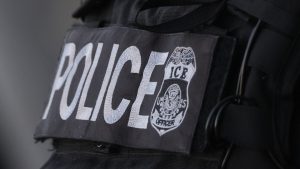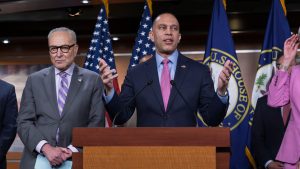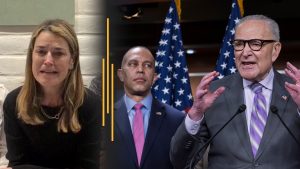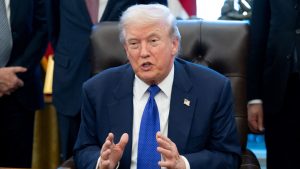What federal law says about National Guard deployments
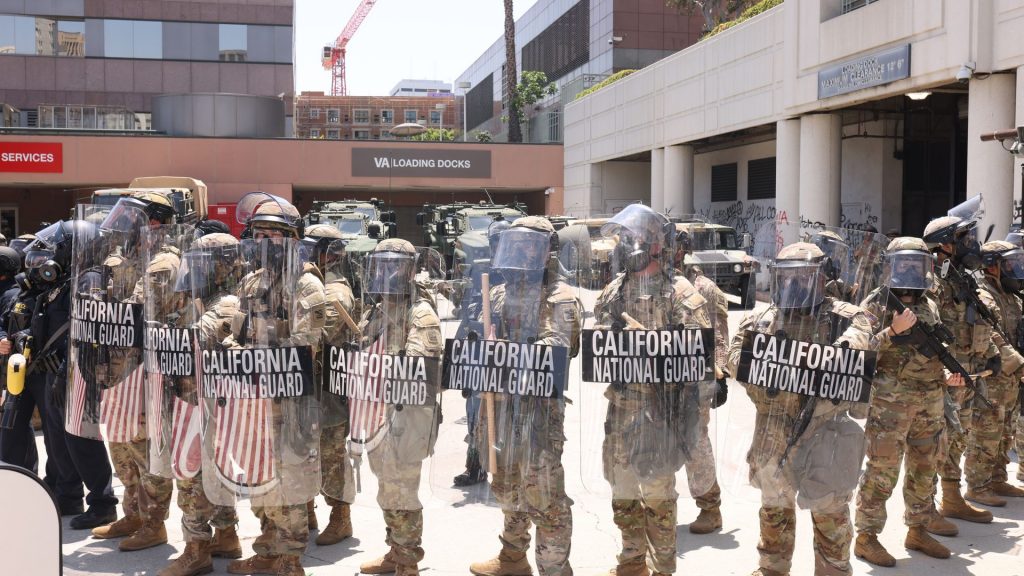
President Donald Trump called 2,000 National Guardsmen into federal service over the weekend of June 7 after protestors in Los Angeles threw eggs and clashed with U.S. Immigration and Customs Enforcement (ICE) agents carrying out immigration raids. The deployment was controversial and described as “unlawful.”
It marked the first time a president deployed the Guard without a governor’s approval since former President Lyndon Baines Johnson sent the National Guard to protect demonstrators from segregationists in Alabama in 1965.
So, what does federal law say about National Guard deployments?
In a signed memorandum, the president cited his authority under Title 10 U.S. Code, Section 12406, which allows the commander-in-chief to call the National Guard of any state into federal service whenever there is a rebellion or danger of rebellion against the government.
The memorandum states, “to the extent that protests or acts of violence directly inhibit the execution of the laws, they constitute a form of rebellion against the authority of the Government of the United States.” The president’s memorandum also said he had to protect those who are performing federal service due to “credible threats” against ICE and other government personnel.
Unbiased. Straight Facts.TM
Before Saturday, June 7, the last time a president deployed the National Guard without a governor’s approval was in 1965, to protect a Civil Rights march in Selma, Alabama.

California Gov. Gavin Newsom, a Democrat, called the deployment unlawful and formally asked the Pentagon to rescind the order.
He pointed out that the law cited by Trump, 10 U.S.C. Section 12406, requires the orders to be issued through the governor of a respective state. Newsom said Trump’s order did not do that. Instead, the Trump administration went directly to California’s Adjutant General.
Newsom said Los Angeles authorities provided a robust response to the protests and that state and local authorities are best suited to evaluate the need for resources.
In addition to the law cited by Trump, there are other federal laws that dictate National Guard deployments on American soil for civil matters.
The Posse Comitatus Act prohibits the Armed Forces from being used to execute laws unless it is expressly authorized by the Constitution or an act of Congress. It was first enacted in 1878, specifically to prevent U.S. Marshals from calling on the Army for assistance in enforcing federal law. It has been updated and reaffirmed on numerous occasions, most recently in 2021.
According to the Brennan Center, a posse comitatus is a group of people who are mobilized by the sheriff to suppress lawlessness in the county.
The Insurrection Act allows the president to call the National Guard whenever “unlawful obstructions, combinations, or assemblages, or rebellion against the authority of the United States make it impracticable to enforce the laws of the United States in any State by the ordinary course of judicial proceedings.”
Here are the relevant sections of the laws mentioned above, verbatim:
Title 10 §12406. National Guard in Federal service
Whenever –
(1) the United States, or any of the Commonwealths or possessions, is invaded or is in danger of invasion by a foreign nation;
(2) there is a rebellion or danger of a rebellion against the authority of the Government of the United States; or
(3) the President is unable, with the regular forces, to execute the laws of the United States;
…the President may call into Federal service members and units of the National Guard of any State in such numbers as he considers necessary to repel the invasion, suppress the rebellion or execute those laws. Orders for these purposes shall be issued through the governors of the States or, in the case of the District of Columbia, through the commanding general of the National Guard of the District of Columbia.
18 U.S. Code § 1385 Posse Comitatus
Whoever, except in cases and under circumstances expressly authorized by the Constitution or Act of Congress, willfully uses any part of the Army, the Navy, the Marine Corps, the Air Force or the Space Force as a posse comitatus, or otherwise to execute the laws, shall be fined under this title or imprisoned not more than two years, or both.
Insurrection Act 10 U.S.C. §§ 331-335
Sec. 332. Use of militia and armed forces to enforce Federal authority
Whenever the President considers that unlawful obstructions, combinations, or assemblages or rebellion against the authority of the United States make it impracticable to enforce the laws of the United States in any State by the ordinary course of judicial proceedings, he may call into Federal service such of the militia of any State, and use such of the armed forces as he considers necessary to enforce those laws or to suppress the rebellion.
Sec. 333. Interference with State and Federal law
The President, by using the militia or the armed forces, or both, or by any other means, shall take such measures as he considers necessary to suppress, in a State, any insurrection, domestic violence, unlawful combination or conspiracy, if it —
(1) so hinders the execution of the laws of that State, and of the United States within the State, that any part or class of its people is deprived of a right, privilege, immunity or protection named in the Constitution and secured by law, and the constituted authorities of that State are unable, fail, or refuse to protect that right, privilege, or immunity or to give that protection; or
(2) opposes or obstructs the execution of the laws of the United States or impedes the course of justice under those laws.
In any situation covered by clause (1), the State shall be considered to have denied the equal protection of the laws secured by the Constitution.
Sec. 334. Proclamation to disperse
Whenever the President considers it necessary to use the militia or the armed forces under this chapter, he shall, by proclamation, immediately order the insurgents or those obstructing the enforcement of the laws to disperse and retire peaceably to their abodes within a limited time.


